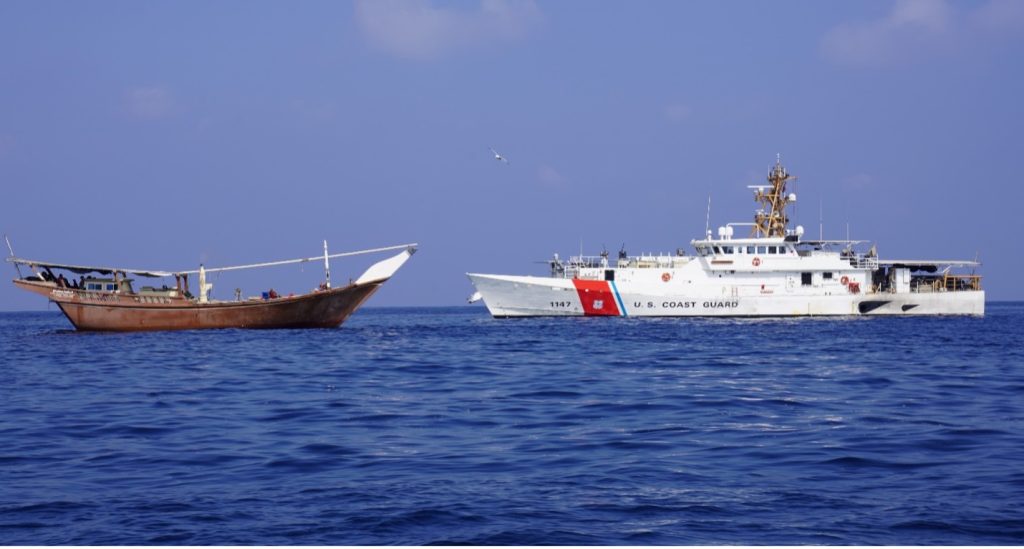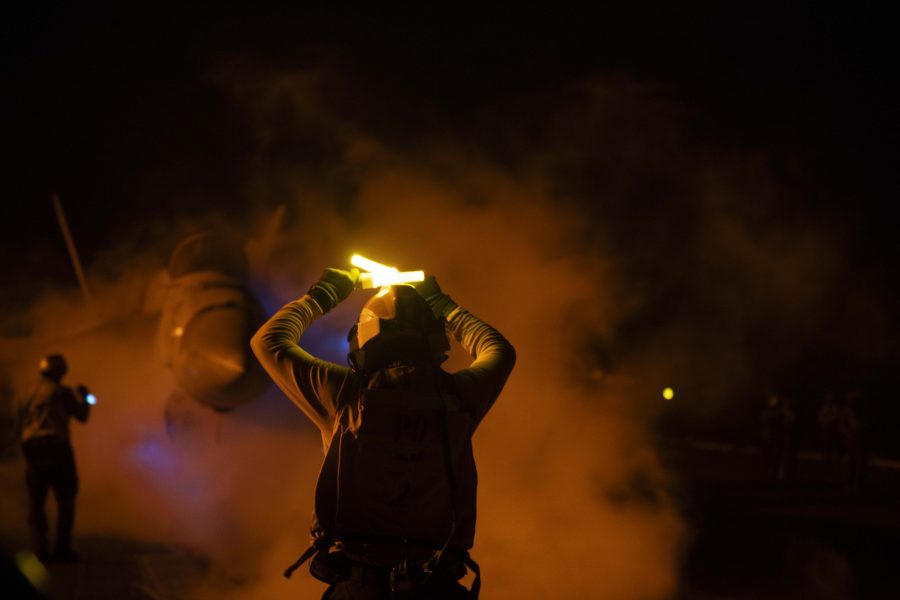The top State Department official for Yemen suggested the U.S. would like to expand the nations willing to participate in airstrikes or maritime patrols against the Houthis in response to the group’s attacks on shipping.
“This is a multifaceted responsibility. It should not be all on the U.S. and the U.K.,” Tim Lenderking, the State Department’s special envoy for Yemen, told a Senate Foreign Relations subcommittee on Feb. 27. “We need to see our Gulf partners in the game much more, and I think we all feel that that is the case.”
The Houthis are still receiving supplies from Iran and retain the capability to threaten shipping, Biden administration officials told Congress.
“We know that they still have capability,” Dan Shapiro, the deputy assistant secretary of defense for Middle East policy, said. “We sort of have a good sense of … what we have been able to eliminate and what they’ve used.”
On Feb. 27, Pentagon Press Secretary Air Force Maj. Gen. Patrick S. Ryder said efforts led by the U.S. have “destroyed or degraded at this stage more than 150 missiles and launchers, including anti-ship land attack and surface-to-air missiles, plus numerous communication capabilities, UAVs, unmanned surface vessels, coastal radars, air surveillance capabilities, rotary wing aircraft, underground facilities, to include weapons storage areas and command and control buildings.”
However, how much of that makes up the Houthis’ overall arsenal is less clear.
“We don’t fully know the denominator,” Shapiro said. “That’s obviously information we’re working to develop.”
After U.S. and U.K. militaries attacked 18 targets at eight locations in Yemen on Feb. 23, Secretary of Defense Lloyd J. Austin III said that the airstrikes “further disrupt and degrade the capabilities” of the Houthis to attack U.S. and international vessels in the Red Sea, the Bab al-Mandeb Strait, and the Gulf of Aden.
Lenderking said the U.S. would like to see a greater international effort through the U.S.-led maritime Operation Prosperity Guardian or direct attacks on military targets.
“There’s certainly engagement at my level … the Secretary of State as well, to, if anything, expand this coalition, either OPG or the strike coalition,” he said.
Iran has equipped the Houthis, and U.S. Central Command has interdicted arms flows from Iran to Yemen in prior years. It has done so twice this year, including one incident in which two Navy SEALs died attempting to board a vessel on Jan. 11 and another on Jan. 28.
“The smuggling continues—we know that it continues,” Shapiro said. “This is a work in progress. But because we know it continues, we are upping our efforts to interdict those shipments.”

Shapiro said the U.S. is working with other countries whose navies could conduct interdictions and working to try to strengthen inspections of tankers coming into Yemen’s ports for weapons. But whether the U.S. can eliminate the Houthis’ ability to disrupt international commerce is another question, and Shapiro declined to reveal the volume and the routes of the shipments in an unclassified setting. However, the successful interdictions pointed to advanced capabilities that could still be making their way to the Houthis.
“In these interdictions, U.S. forces discovered over 200 packages that contain components of unmanned of underwater and surface vehicles; propulsion, guidance, and warheads for Houthi medium-range ballistic missiles and anti-ship cruise missiles; air defense associated components; military-grade communication network equipment; anti-tank guided missile launcher assemblies; explosives and other military components—the very same weapons that have been employed by the Houthis to threaten and attack U.S. Navy vessels, but also innocent mariners on commercial ships,” Shapiro said.
The Pentagon said that it is prepared to continue the strikes if the Houthis don’t cease their attacks
“We’ll continue to make clear to the Houthis that they will bear the consequences if they do not stop their illegal attacks, which harm Middle Eastern economies, cause environmental damage, and disrupt the delivery of humanitarian aid to Yemen and other countries,” Ryder said Feb. 26.
